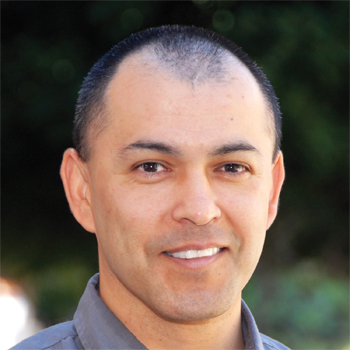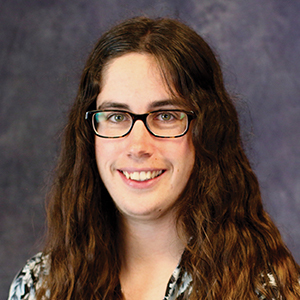Torres honored for decades dedicated to diversity in science

“I am deeply honored to be the recipient of the 2019 Ruth Kirschstein Diversity in Science Award. It is imperative that the scientific workforce represent the diversity of our society. A diverse and inclusive scientific workforce can harness the creativity, thought and experience that can spur innovation and the advancement of science. I commend all that strive for true diversity in STEM!”
— Jorge Torres
Torres studies proteins that direct the assembly and function of the mitotic spindle and uses multidisciplinary approaches to develop new anti-cancer drugs. He has authored over 30 publications in his nine years as a principal investigator, and his discoveries have led to two provisional patents. He also has developed a compound target identification database and other resources, which he has posted online to benefit other researchers in his field. His contributions to understanding mitotic spindle function and pathology have earned him multiple honors, including the Basil O’Connor Award from the March of Dimes Foundation and the American Cancer Society Research Scholar Award.
When he was an undergraduate at the University of California, Santa Barbara, Torres helped found an organization to recruit minority students to the university and provide peer mentoring and tutoring. He participated in similar programs and activities as a graduate student at Princeton University and postdoctoral fellow at Stanford University and Genentech.
As a principal investigator, he has mentored more than 20 minority undergraduates, graduate students and postdoctoral fellows. Most of his undergraduate students become co-authors on a publication before leaving his lab, and three have won the UCLA Dean’s Research Prize. Torres also mentors students in the classroom, developing new curricula and guest lecturing in multiple courses.
In her nomination letter for the award, Tama Hasson, assistant vice provost for undergraduate research at UCLA, wrote, “From the day he arrived he has served as an extraordinary role model for our diverse student body. He has proven to be a great colleague and has shared our campus’ vision for improving the diversity of the academy.”
Torres shares his discoveries and mentorship experience with a variety of audiences. He has spoken at minority-targeted conferences and participated in multiple campus and statewide diversity initiatives, including the National Science Foundation-Louis Stokes California Alliance for Minority Participation. He has given Spanish-language interviews about his research on Univision and CNN en Español.
Torres’ colleagues commend his contributions in research, mentorship, teaching and advocacy. In her nomination letter, Sabeeha Merchant, formerly of UCLA and now a distinguished professor of biochemistry, biophysics and structural biology at the University of California, Berkeley, describes Torres as “an all-around outstanding individual — a creative scientist, an inspired teacher and a dedicated citizen of the diverse community around him.”
Enjoy reading ASBMB Today?
Become a member to receive the print edition four times a year and the digital edition monthly.
Learn moreGet the latest from ASBMB Today
Enter your email address, and we’ll send you a weekly email with recent articles, interviews and more.
Latest in People
People highlights or most popular articles

Sketching, scribbling and scicomm
Graduate student Ari Paiz describes how her love of science and art blend to make her an effective science communicator.

Embrace your neurodivergence and flourish in college
This guide offers practical advice on setting yourself up for success — learn how to leverage campus resources, work with professors and embrace your strengths.

Survival tools for a neurodivergent brain in academia
Working in academia is hard, and being neurodivergent makes it harder. Here are a few tools that may help, from a Ph.D. student with ADHD.

Quieting the static: Building inclusive STEM classrooms
Christin Monroe, an assistant professor of chemistry at Landmark College, offers practical tips to help educators make their classrooms more accessible to neurodivergent scientists.

Hidden strengths of an autistic scientist
Navigating the world of scientific research as an autistic scientist comes with unique challenges —microaggressions, communication hurdles and the constant pressure to conform to social norms, postbaccalaureate student Taylor Stolberg writes.

Richard Silverman to speak at ASBMB 2025
Richard Silverman and Melissa Moore are the featured speakers at the ASBMB annual meeting to be held April 12-15 in Chicago.

